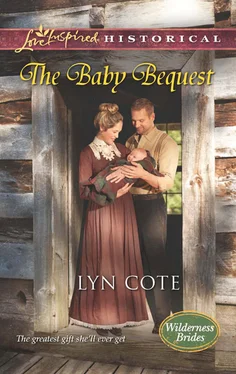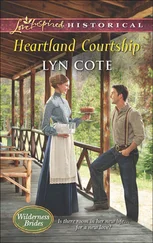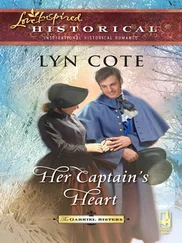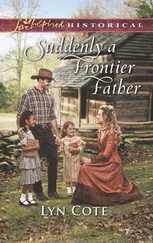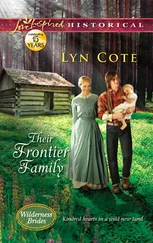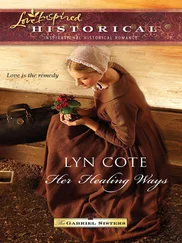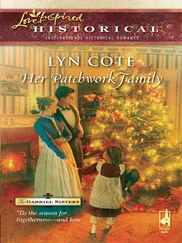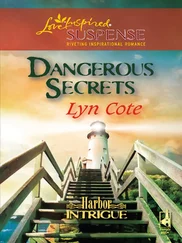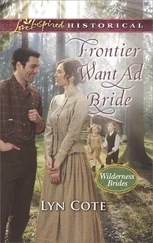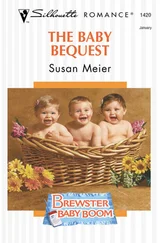She nodded out of politeness but she couldn’t help voicing an immediate concern. “Isn’t your brother a bit old to attend school? Most students only go to the eighth grade—I mean, until about thirteen years old.”
“Gunther needs to learn much about this country. He will go to school.”
The man’s tone brooked no dispute. So she offered none, straightening her back and wishing the horse would go faster.
Yes, your brother will attend, but will he try to learn? And in consequence, will he make my job harder?
The oppressive silence surged back again and Ellen began to imagine all sorts of dreadful reasons for her cousin not meeting her on the appointed day. Ellen searched her mind for some topic of conversation. She did not want to dwell on her own worry and misery. “Are you homesteading?”
“Ja. Yes. I claim land.” His voice changed then, his harsh tone disappearing. “Only in America is land free. Land just...free.”
In spite of herself, the wonder in his voice made her proud to be an American. “Well, we have a lot of land and not many people,” she said after a pause. If she felt more comfortable at being alone with him, she would have asked him to tell her about Europe, a place she wished to see but probably never would.
“Still, government could make money from selling land, yes?”
She took a deep, steadying breath. “It’s better not to look a gift horse in the mouth.”
More unwelcome silence. She stole another glance at him. The man appeared in deep thought.
“Oh,” he said, his face lifting. “Not look gift horse...to see if healthy.”
“Exactly,” she said. She hadn’t thought about the phrase as being an idiom. How difficult it must be to live away from home, where you don’t even know the everyday expressions. Homesickness stabbed her suddenly. Her heart clenched. Perhaps they did have something in common. “It must have been hard to leave home and travel so far.”
He seemed to close in on himself. Then he shrugged slightly. “War will come soon to Germany. I need to keep safe, to raise Johann.”
“You might have been drafted?” she asked more sharply than she’d planned. During the Civil War, many men had bought their way out of the draft. Not something she approved of.
“Ja—yes—but war in Germany is to win land for princes, not for people. No democracy in Germany.”
“That’s unfortunate.” No doubt not having any say in what the government did would make being drafted feel different. Ellen fell silent, exhausted from the effort of making conversation with this man who reminded her so much of Holton. She knotted her hands together in her lap, as if that would contain her composure. Would this ride never end?
“We—the men—we build the school...more on Saturday,” he said haltingly.
This pleased her. She wanted to get her life here started, get busy so she could put the past in the past. “How much longer do you think it will take?”
“Depends. Some men harvest corn. If rain comes...” He shrugged again, seeming unable to express the uncertainty.
“I see. Well, I’ll just have faith that it will all come together in the next few weeks. Besides, the delay gives me more time to prepare lessons.”
At that moment, Mr. Lang turned the wagon down a track and ahead lay the Steward cabin. Ellen’s heart leaped when she saw her cousin, carrying her baby, hurry out to greet her.
“Ophelia!” she called.
Mr. Lang drew up his team. “Wait,” he insisted. “Please, I help.” He secured the brake.
But Ellen couldn’t wait. She jumped down and ran to Ophelia, the emotions she’d been working so hard to keep at bay finally overtaking her. She buried her face in Ophelia’s shoulder and burst into tears. Her feelings strangled her voice.
Chapter Two
“Why weren’t you at the river to meet me?”
Ellen grasped her cousin’s hand desperately as Mr. Lang drove down the track away from them. She had managed to pull herself together enough to bid Mr. Lang goodbye and thank him for the ride, but she was glad to see him leave—his presence had pushed her over the edge emotionally. The man had only been kind to her, but being alone with him had nearly been more than she could bear.
“Why weren’t you at the river to meet me?” Ellen repeated.
Ophelia pulled a well-worn letter from her pocket. “You said your boat would dock tomorrow. ‘I will arrive on the sixteenth of August,’” she read.
“But that’s today.”
“No, dear, that’s tomorrow. It’s easy to lose track of days when traveling. I know I did.”
Ellen thought her own mental state must be the explanation. As Ophelia guided her to a chair just outside the log cabin and disappeared inside, Ellen tried to appear merely homesick and travel-weary, not heartsick. She must master herself or this thing would defeat her. She stiffened her spine.
Soon Ophelia bustled into the daylight again and offered her a cup of tea. “This will help. I know when I arrived I...” Her cousin paused, frowning. “I cried a lot. It’s a shock leaving family, leaving home.” She sat down beside Ellen and began nursing her little boy.
Ophelia had thoughtfully offered her an excuse for her tears and she would not contradict her. Yet the invisible band around her heart squeezed tighter. Ellen took a sip of the tea, which tasted like peppermint. “I’ll adjust.”
“Of course you will. You’ve done right coming here. Pepin has the nicest people, and those with children are so happy to have a teacher. They can’t wait to meet you.”
A weight like a stone pressed down on Ellen’s lungs. She’d never taught before. Would she be good at it? “I’m glad to hear that.”
“The schoolhouse with your quarters isn’t finished yet, but Martin and I will love having you spend a few weeks with us.”
That long? How could she keep her misery hidden that long, and from Ophelia, who knew her so well? “I’m sorry for arriving early and putting you out—”
“You’re not putting me out,” Ophelia said emphatically. “Having family here—” the young mother paused as if fighting tears “—means a great deal to me.”
Touched, Ellen reached out and pressed her hand to Ophelia’s shoulder. “I’m glad to have family here, too.” Family that loves me, she thought.
Her cousin rested her cheek on Ellen’s hand for a moment. “I’m sorry I missed Cissy’s wedding.”
The image of Holton kissing her sister, Cissy, in their parlor, sealing their life vows, was a knife piercing Ellen’s heart. What had happened had not been her naive younger sister’s fault, she reminded herself. “Cissy was a beautiful bride,” she said bravely.
“Oh, I wish I could have been there, but we couldn’t justify the expense of the riverboat fare and the time away from our crops. It seems every varmint in Wisconsin wants to eat our garden and corn.” Ophelia sounded indignant. “You’d think our farm was surrounded by a desolate desert without a green shoot, the way everything tries to gobble up our food.”
Ellen couldn’t help herself; a chuckle escaped her. Oh, it felt good to laugh again.
“It’s not funny.”
“I know, but you are. Oh, Ophelia, I’ve missed you.”
And it was the truth. Ophelia had been a friend from childhood, slipping through the back fence to Ellen’s house, escaping her own overbearing, scene-making mother.
“I miss your parents. They were always so good to me,” Ophelia said in a voice rich with emotion, rich with love and sympathy.
The cousins linked hands in a silent moment of remembrance.
“They were good to me, too,” Ellen murmured. Strengthened, she released Ophelia’s hand. “But they are with God and I am here with you. To start a new life, just like you have.”
Читать дальше
